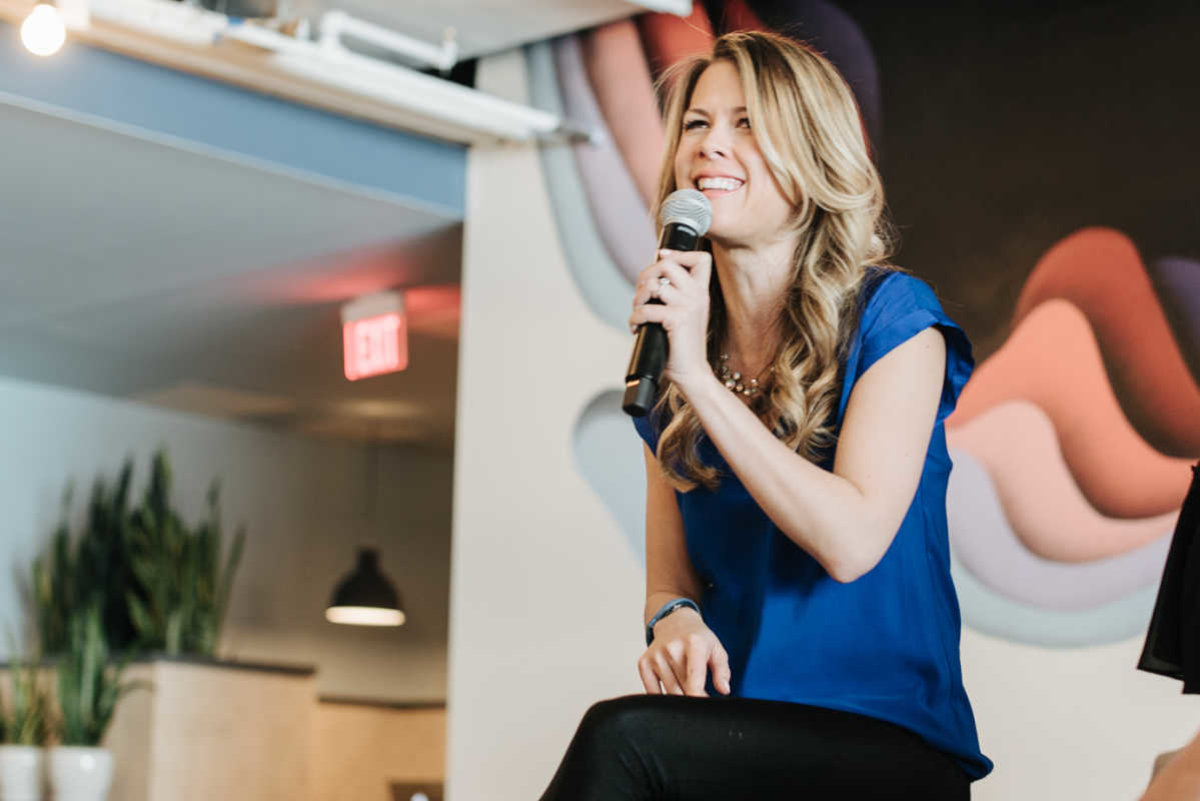By Jonathan Takiff
Philadelphia Daily News
WWR Article Summary (tl;dr) Combining aspects of social networking, information and advice sharing, “Dreamers // Doers” offers an online “safe space” for female entrepreneurs.
Philadelphia Daily News
Are you a female with a dead-end job and a great entrepreneurial idea? Or one who’s already started a business but in need of professional feedback, moral support, or maybe part-time or full-time work assistance?
Dreamers // Doers might offer just the jolt of camaraderie, fresh insights, and mutual empowerment you need to move your project from “nice idea” to full-fledged success.
Combining aspects of social networking, information and advice sharing, and juicy job posting, Dreamers // Doers offers an online “safe space” for female entrepreneurs whose bold dreams might have earned a quick dismissal in a mostly male or mixed setting, explained 34-year-old founder Gesche Haas.
A former investor for a hedge fund, her interesting first name, and never-say-no spirit reflects an international bloodline, dad’s German, mom’s Chinese/Malayasian, and her often-challenging, globe-hopping upbringing.
“We’ve noticed over time that women act differently, are more outspoken, honest, and sharing, when they’re in the majority versus the minority,” Haas noted in a recent chat. And in the Dreamers // Doers ethic, giving is more important than getting, with positivity lifting all boats.
“Women don’t celebrate wins enough. When one succeeds, we all succeed. And your pro bono offer of help could lead to a business collaboration down the road.”
Guys are most definitely welcome, though, at Dreamers // Doers off-line events _ likely to happen here “about once a month at shared spaces, like WeWork and maybe in the LIFT Labs for Entrepreneurs work spaces that Comcast will be opening.”
Four years in development, with chapters now in a dozen cities from L.A. to London, the “extended family” of Dreamers // Doers has grown to a community numbering “in the five figures,” nurtured mostly on word of mouth “and without advertising or taking corporate sponsorship for fear we’d then be accountable,” said the developer. Dreamers // Doers’ value is growing by leaps and bounds. “It’s been estimated that half the population will be identifying as freelance workers by 2020,” Haas cites.
Dreamers // Doers parent company Trailblazer Ventures also has rejected, and Haas cautions start-up leaders not to take, venture capital investments. “VC guys will never be satisfied with the relatively small win of a few million that seems great to you. Even if it burns you out, they want you to keep pushing for the billion-dollar unicorn, for the takeover that pays back their losses in the other nine companies that didn’t make anything for them and their investors.”
So how does Dreamers // Doers get by? About 1,000 “curated” members pay the bills with a monthly fee of $65 that earns them “some extra perks, more one-on-one mentoring, and higher-level networking with influentials.”
Most participants fall into the “25 to 35” age bracket.
For the new Philly branch, though, Haas was guided by the touts of “Julie Krohner, one of our founding members and now the local chapter coleader” to let Julie’s former employer, Comcast, take on a local sponsorship relationship. “They’ll help us supercharge the Philly chapter, with extra, free resources for local members.”
“Comcast was a start-up 50 years ago and remains strongly committed to supporting entrepreneurs from all backgrounds to help drive growth and innovation in cities around the nation,” said Danielle Cohn, executive director of Entrepreneurial Engagement at Comcast NBCUniversal. “Entrepreneurs need a culture of collaboration and supportive community for innovation to thrive.”
While recent studies on female-steered business leadership have shown promising growth, the playing field remains quite tilted.
A report commissioned by American Express Open estimated that there are now 11.3 million women-owned business in the U.S., reflecting an increase of 45 percent between 2007 and 2016, compared with just a 9 percent increase among all businesses. And women are now majority owners of 38 percent of the country’s businesses, up from 29 percent in 2007. But most are small enterprises, often service based, employing just 8 percent of the private sector’s workforce and contributing a “tepid” 4 percent to the nation’s business revenues, a share unchanged in the last 20 years.
A Mother’s Day connected “Mompreneur” study from the 99designs on-demand design marketplace found that significantly fewer mom entrepreneurs (19 percent) secured any outside funding for their businesses as compared with male correspondents at 27 percent. Male entrepreneurs are twice as likely to raise $100,000 or more in funding.














































































































































































































































































































































































